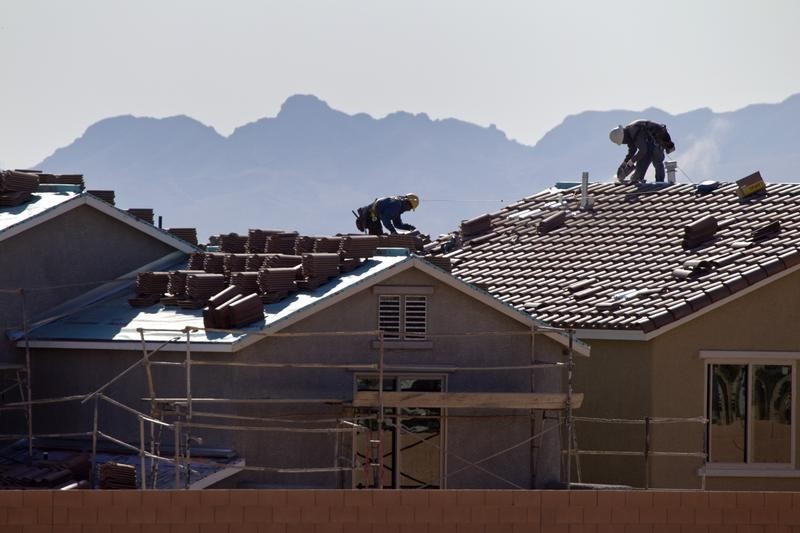By Wayne Cole
SYDNEY, Nov 30 (Reuters) - Australia is watching a much-needed boom in home building turn to rubble after approvals for new projects collapsed in October, a violent turnaround that could undermine policymakers' hopes for solid economic growth next year.
Shock figures from the Australian Bureau of Statistics on Wednesday showed approvals to build new homes sank 12.6 percent in October from a month earlier, confounding forecasts of a 1.5 percent rise and the biggest drop since mid-2012.
It was the third month of declines and brought the pullback since July to 22.5 percent.
"Overall the update is unambiguously weak and puts a clear marker in the ground showing the construction cycle is now turning down," said Matthew Hassan, an economist at Westpac.
Most of the damage came in the once high-flying apartment sector where approvals dived by a quarter in October alone, and were down more than 42 percent on the same month last year.
That will be alarming news for the Reserve Bank of Australia (RBA), which has been counting on continued strength in home building to offset a lingering drag from a mining slump.
Indeed, figures due next week had already been expected to show the economy all but stalled in the third quarter, and may even have shrunk - only the fourth negative quarter in 25 years.
"Total approvals are still relatively high but the speed at which they are rolling over is a real surprise," said Shane Oliver, chief economist at AMP.
"It already looks like the economy lost momentum in the third quarter and now residential investment could turn into a drag on growth next year," he added.
"That only underscores our call for another rate cut next year."
While the economy had been running at a brisk 3.3 percent in the year to June, that likely slowed closer to 2.0 percent for the year to September.
The RBA has been playing down the need for further easing following cuts in August and May that took the cash rate to an all-time low of 1.5 percent.
Policymakers argued that the massive drag from a slowdown in mining investment had almost passed, while a revival in prices for key commodity exports in recent months was set to boost national income.
As a result, financial markets had all but given up on the chance of a further rate cut 0#YIB: and were even toying with the idea of a hike late in 2017.
"All talk of a hike is out the window after these building numbers," said Oliver.
